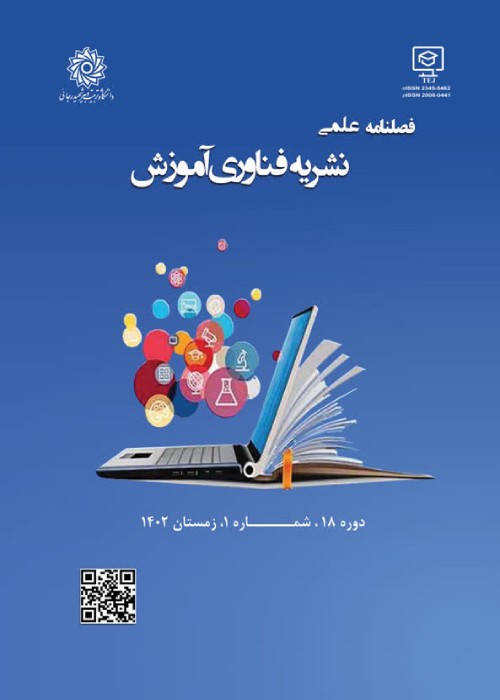Exploring the Relationship among Various Forms of Social Support, Academic Engagement, and Technology Anxiety amidst the COVID-19 Pandemic: An investigation of mediation and moderation effects
The central objective of the educational system is to cultivate student success, promote academic progress, and foster meaningful and enjoyable learning experiences. Achieving these aims hinges significantly on student engagement in the learning process, as its absence may lead to academic failure and suboptimal outcomes. Numerous factors influence students' academic engagement quantity and quality, warranting thorough investigation. This need has been accentuated by the widespread implementation of virtual education during the COVID-19 pandemic, which has been associated with declining academic performance and reduced interest in learning among students. In response to this challenge, examining the factors that impact academic engagement, including the support provided by teachers, parents, and classmates, and integrating new technologies that have become integral to the educational landscape is essential. However, utilizing these new technologies also brings unique challenges, notably technology anxiety, wherein students may experience fear and apprehension when confronted with technology-related tasks. The present research explores the relationship between the type of social support and learners' level of academic engagement, considering the mediating and moderating role of technology anxiety. By elucidating such relationships, this study aims to propose innovative and contemporary solutions that effectively harness social support, ultimately ensuring educational success and fostering positive learning experiences amidst the complexities of modern education.
The research adopted a quantitative and survey-correlation methodology. The statistical population comprises 528 eighth-grade high school students (264 girls and 264 boys) from Famnin City during the academic year 2021-2022. Initially determined as 225 individuals using Karajesi and Morgan's table and selected through random cluster sampling, the sample size was later increased to 402 participants (221 girls and 181 boys) to enhance generalizability. The research instruments consist of Reeve's 2013 Academic Engagement Questionnaire, Dimrai and Maleki's 2002 Social Support Questionnaire, and Bandalos and Benson's 1990 Computer Anxiety Questionnaire. Convergent and divergent validity assessed the items' validity, while Cronbach's alpha, combined reliability, and Spearman's tests measured item reliability. The presented model and results were analyzed using structural equations and Spearman's correlation test.
The findings from the structural equations analysis indicate a significant relationship between social support and the extent of student academic engagement mediated by technology anxiety. The social support provided by parents, teachers, and classmates exhibits both direct and indirect effects on students' academic engagement. This support, comprising instrumental, informational, emotional, and evaluative aspects, positively influences students' engagement in various technological aspects, including communication, work success, confidence, and intimacy. Consequently, technology anxiety is reduced, increasing academic engagement across behavioral, cognitive, emotional, and causal dimensions. Furthermore, this positive effect remains evident even when not considering technology anxiety as a mediating factor.
The research findings highlight the crucial and fundamental role of parents, teachers, and classmates in addressing students' challenges, particularly in the realm of technology and its application in education. These key stakeholders can provide essential support to students, facilitating the resolution of technological issues. Recognizing their significant impact, policymakers and educational authorities should harness these valuable resources to enhance the quality of online education. Implementing targeted programs and plans to encourage parents, teachers, and classmates to offer increased social support will ultimately improve the overall learning experience and academic engagement.
- حق عضویت دریافتی صرف حمایت از نشریات عضو و نگهداری، تکمیل و توسعه مگیران میشود.
- پرداخت حق اشتراک و دانلود مقالات اجازه بازنشر آن در سایر رسانههای چاپی و دیجیتال را به کاربر نمیدهد.



